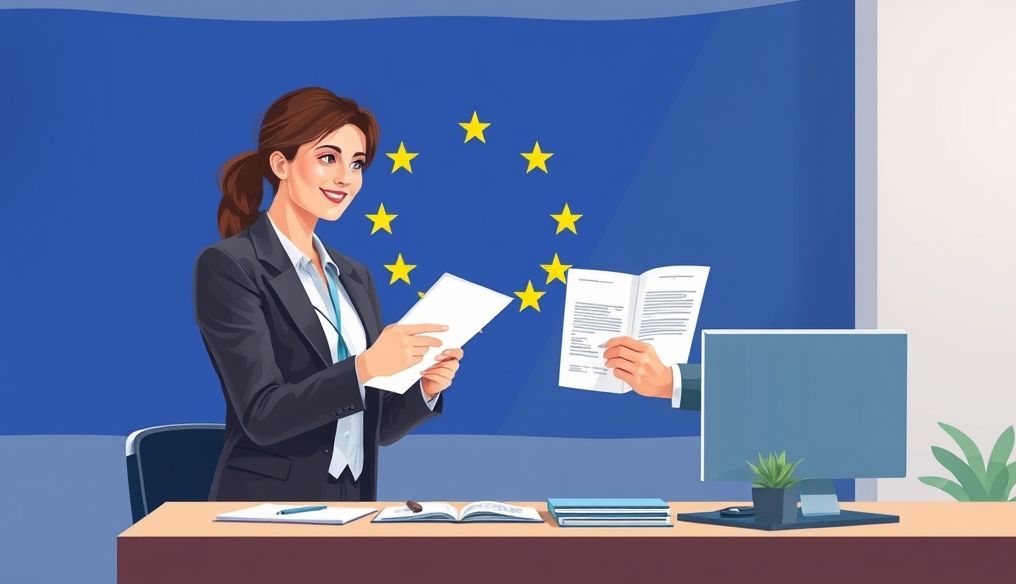What is a Schengen Visa and Which Countries Does it Cover?
A Schengen visa is a visa that allows its holder to travel freely within the Schengen area, which is a region comprising 27 European countries that have abolished border controls between them. This means that once you obtain a Schengen visa from one of these countries, you can travel to any other country in the area without needing an additional visa. The Schengen countries include:
- Austria
- Belgium
- Czech Republic
- Denmark
- Estonia
- Finland
- France
- Germany
- Greece
- Hungary
- Iceland
- Italy
- Latvia
- Liechtenstein
- Lithuania
- Luxembourg
- Malta
- Netherlands
- Norway
- Poland
- Portugal
- Slovakia
- Slovenia
- Spain
- Sweden
- Switzerland
The Schengen visa does not include EU countries that are not part of the Schengen area, such as Ireland, Romania, Bulgaria, Croatia, and Cyprus.
Identifying the Right Visa Type for Your Travel Purpose
There are different types of Schengen visas, each designed for a specific purpose of travel. It is important to identify the appropriate type for your travel purpose to avoid any problems during the application. The main types include:
- Tourist Visa: For tourism and holidays.
- Visit Visa: To visit friends or family residing in the Schengen area.
- Business Visa: To attend conferences, meetings, and business events.
- Study Visa: To study at an educational institution in the Schengen area (usually requires a long-term residence permit).
- Transit Visa: To pass through an airport or country in the Schengen area to reach a destination outside the area.
- Medical Visa: To receive medical treatment in the Schengen area.
Choose the type that accurately matches your travel purpose. For example, if you are traveling to visit a friend, choose a visit visa, not a tourist visa.
Required Documents for a Schengen Visa: A Comprehensive List
The required documents vary slightly depending on the visa type and nationality, but there is a basic list of documents that all applicants must submit:
- Visa Application Form: Must be completed accurately and signed. You can download it from the website of the embassy or consulate concerned.
- Valid Passport: Must be valid for at least three months after the expiry date of the requested visa, and must contain at least two blank pages.
- Passport Photos: Must be recent (within the last six months), with a white background, and comply with biometric photo requirements.
- Proof of Accommodation: Confirmed hotel reservation or invitation letter from a person residing in the Schengen area with proof of their legal residence.
- Round-Trip Flight Ticket: Confirmed flight booking showing the date of entry and exit from the Schengen area.
- Travel Insurance: Travel insurance must cover all Schengen area countries, be valid for the entire period of stay, and cover emergency medical expenses and repatriation with a minimum amount of €30,000.
- Proof of Financial Resources: You must provide proof of your ability to cover the costs of accommodation and travel, such as recent bank statements, a letter from your employer stating your salary, or a sponsorship letter from another person.
- Letter of Introduction from Employer (for employees): Stating job title, length of service, and salary.
- Commercial Register (for business owners): Copy of the commercial register.
- Proof of Marital Status: Marriage certificate (for married individuals), birth certificate (for children).
Make sure to collect all the required documents before applying to avoid any delays or rejection.
Booking an Appointment at the Embassy or Consulate: A Detailed Guide
After collecting all the required documents, you must book an appointment at the embassy or consulate of the country where you intend to spend most of your time. If you intend to spend the same amount of time in several countries, apply to the embassy of the country you will enter first. The appointment can be booked online through the embassy or consulate website. There is often a fee to book the appointment. Be sure to book the appointment early, especially during peak seasons, as appointments may be limited.
Tips for booking an appointment:
- Check the embassy or consulate website regularly for available appointments.
- Be prepared to provide your personal information and passport details.
- Confirm the appointment after booking.
- Keep a copy of the appointment confirmation.
Interview Day: Tips and Guidelines for Success
The interview day is an opportunity to submit your application and explain your travel purpose to the visa officer. Be prepared to answer questions about your travel plans, financial resources, and relationships in your country. Here are some tips for success in the interview:
- Be on Time: Arriving on time shows your respect and commitment.
- Dress Appropriately: Formal attire makes a good impression.
- Be Confident and Calm: Speak clearly and confidently.
- Answer Questions Honestly: Do not try to mislead the visa officer.
- Be Prepared to Provide Additional Documents: The visa officer may request additional documents.
- Be Polite and Respectful: Treat the visa officer with respect.
Remember that the visa officer wants to make sure that you are a genuine traveler and that you will return to your country after the visa expires.
Visa Fees and How to Pay Them
Schengen visa fees vary depending on nationality and visa type. The fees are usually uniform for all Schengen countries. Fees can be paid in cash or by credit card at the embassy or consulate. Be sure to check the specific amount of the fees before going to the appointment. In some cases, certain categories may be exempt from fees, such as students and researchers.
Important Note: Visa fees are non-refundable even if the application is rejected.
Visa Validity Period: Understanding Restrictions and Conditions
The validity period of a Schengen visa depends on several factors, including your nationality and your previous travel history to the Schengen area. A Schengen visa may be issued for a short period (a few days or weeks) or for a long period (several months or years). A short-stay Schengen visa allows you to stay in the Schengen area for a maximum of 90 days within a 180-day period. If you need to stay longer, you may need to apply for a long-term national visa from the country you intend to reside in.
Important: Exceeding the permitted stay in a Schengen visa can lead to fines, deportation, and being banned from entering the Schengen area in the future.
Reasons for Visa Rejection and How to Avoid Them
A Schengen visa application may be rejected for several reasons, including:
- Failure to submit all required documents.
- Providing false or misleading information.
- Failure to prove the true purpose of travel.
- Failure to prove financial ability to cover travel and accommodation costs.
- Having a criminal or security record.
- Suspecting that you intend to stay in the Schengen area illegally.
Tips to avoid rejection:
- Make sure to submit all required documents complete and correct.
- Be honest and clear in your answers.
- Prove the true purpose of your travel.
- Prove your financial ability to cover travel and accommodation costs.
- Provide accurate information about your relationships in your country.
What to Do in Case of Visa Rejection: Appeal Steps
If your Schengen visa application is rejected, you have the right to appeal the decision. The appeal must be submitted within a specified period (usually a few weeks) from the date of receipt of the rejection letter. The appeal must include the reasons for the visa rejection, the reasons why you believe the decision is wrong, and any additional documents supporting your application. You may need to pay a fee for the appeal. The appeal will be reviewed by a higher official at the embassy or consulate. The appeal process may take several months. In some cases, it may be necessary to hire a lawyer to file the appeal.
Important Note: Obtaining a Schengen visa is not a guaranteed right. Even if you meet all the requirements, the final decision rests with the embassy or consulate.




